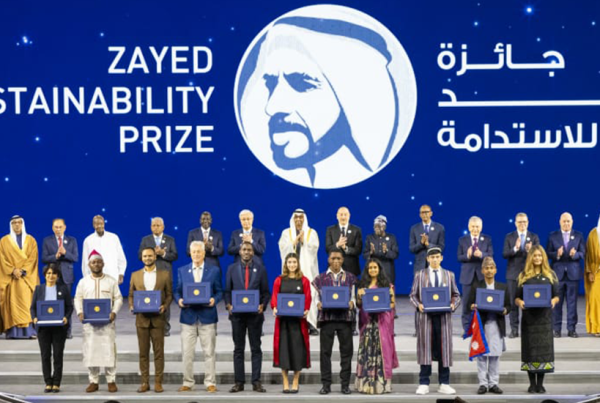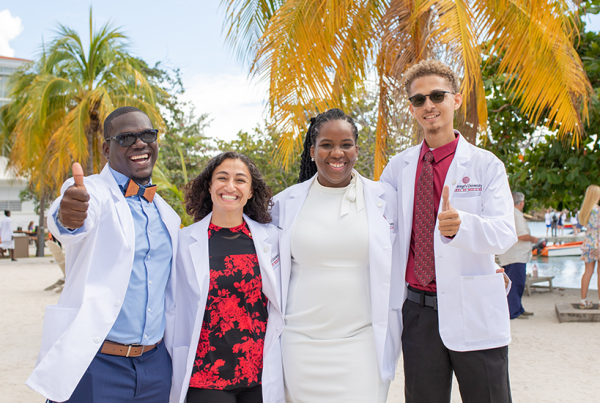Africa’s demographic dividend provides challenges for policy-makers, but in education we can make a significant difference by changing how graduates think as they enter the world of work.
Young people are Africa’s most valuable asset and the single most important key to unlocking sustainable economic growth. The “youth bulge” is remarkable – its working population is estimated to grow by 70% by 2035, reaching 450 million people.
Strengthening skills and knowledge so that this enormously valuable asset is fully utilised and millions of young Africans can compete in a global, digitised economy is therefore critical. The region’s entire socio-economic future rests on the development of “21st century skills”.
The United Nations’ Sustainable Development Goal 4 (SDG 4) and the Education 2030 agenda (including Target 4.7), commits countries to ensuring that school children and students acquire knowledge and skills in areas such as sustainable development, human rights, gender equality and global citizenship, amongst others.
SDG 4 states that more than half of children and adolescents worldwide are not meeting minimum proficiency standards in reading and mathematics – with the lowest levels of primary education participation being in sub-Saharan Africa.
Targets
It also sets the world a number of targets. These range from ensuring equal access for all women and men to affordable and quality technical, vocational and tertiary education, including university.
It isn’t only international bodies pushing this agenda. African governments have come together to create Agenda 2063, which states that Africa’s human capital is its most precious resource but that it can only be realised through sustained investments in education.
It also points towards the linear relationship between prosperity, high-quality economic growth and employment opportunities for all, especially women and youth.
The Agenda demands that African policy-makers invest in skills, science, technology, engineering and mathematics so that the people of Africa can drive the continent’s development forward.
What this tells us is that African universities should not just prepare students for jobs that might be on offer but stimulate them to see the possibilities for innovation and even – for some – the creation of their own jobs. Globally, higher education is taking an innovative approach to developing 21st century leaders.
For example, business schools are now offering self-employed placement years, running charities to support skills development and staging competitions based around innovation and enterprise.
Catalysing sustainable growth
The clear need for a skills-based approach to tertiary education underpins the ethos behind Honoris United Universities’ strategy for developing 21st century skills for employability. This includes the provision of a “Collective Lab”. Accessible to all students across the entire network of 10 institutions from Cape Town to Casablanca, the Collective Lab is an open access place to meet, learn, connect, create, share, inspire and encourage critical thinking.
These multi-purpose spaces include innovation labs, co-working spaces, learning spaces, incubation opportunities, events and commercial venues. These are practical, transformative solutions to the need for soft and hard skills development amongst our students – and crucial in the pursuit of sustainable growth.
Emphasising employability
By placing such importance on employability, Honoris is able to focus the minds of students on life after studying, which is why as part of the Collective Lab, Honoris has developed “iLeadLAB”, a specialist “employability unit” within the REGENT Business School, which officially opened in November 2018. The new unit has been developed in response to the accelerated pace of technological transformation and global labour market disruption, with a focus on strong inter- and intra-personal skills. iLeadLAB empowers participants with core competencies needed to build a dynamic career in an increasingly competitive marketplace.
These highly specialised areas of focus reflect a much-needed, fresh and innovative approach to learning. The soft skills that they nurture are not only invaluable for employment but also for interpersonal and cultural agility. This is important in today’s globalised, digital world where developments such as automation and AI have begun to transform how the individual builds a career and how they interact with new customers, colleagues and people from different parts of the world.
The Collective Lab supports these capabilities by promoting collaborative intelligence between students, professors, researchers, professionals and civil society actors. This provides undergraduates with an exceptional breadth of exposure to world views and attitudes. It also creates a sense of “mental agility” and problem-solving that encourages creativity and sharing.
We know that a growing number of employers no longer look for graduates with the most impressive degree certificates. Employers seek graduates who can think for themselves, integrate into fast-paced work environments, learn new ways of working and develop creative solutions to real problems.
Capabilities rather than degrees
Ernst & Young has removed academic qualifications from their training programme entry requirements as part of the process of modernising the workplace, challenging traditional thinking and ways of doing things. They are also transforming their recruitment processes to open up opportunities for talented individuals regardless of their background and provide greater access to the profession. Not only should such an approach be lauded for widening access, it is part of a much bigger reality: in a world where technology is disrupting what we do and how we do it (on an unprecedented level), people now need to hire people with capabilities, not degrees.
Reflecting this need, agility and entrepreneurial freedom is inherent in Honoris’ vision of education. All of its students, beyond academic and practical education, will have access to the Collective Lab to encourage the development of projects that contribute to a positive impact on economies and communities.
In addition, the network established the Honoris Academic Council in early 2019 as part of its vision to ensure that each and every graduate will be the collaborative, agile, and mobile employee or entrepreneur in their chosen field and equipped with the 21st century workplace skills and credentials they will need to excel.
The Academic Council’s mandate includes the development of cutting-edge learning infrastructures such as the Honoris Medical Simulation Center in Tunisia, the SmartiLab at EMSI in Morocco, the iLeadLab at REGENT Business School and the future iTeachLAB at MANCOSA in South Africa.
These individual centres of excellence are transforming their respective corners of Africa: collectively they are reaching across the continent and changing how tertiary education works for good.
Africa’s enormous and fast-growing youth demographic is a prize that any developed country would love to win. It provides the entire region with an extraordinary level of human capital that, if realized, will transform African countries and the wider continent for the better, forever. That is why more and more students, right across the continent, are adopting 21st century skills: changing how they think, developing a mobile mindset and learning how to make it in today’s complex global economy.
Professor Zaheer Hamid is the Academic Director of MANCOSA (Honoris United Universities).
Check the full article on universityworldnews


